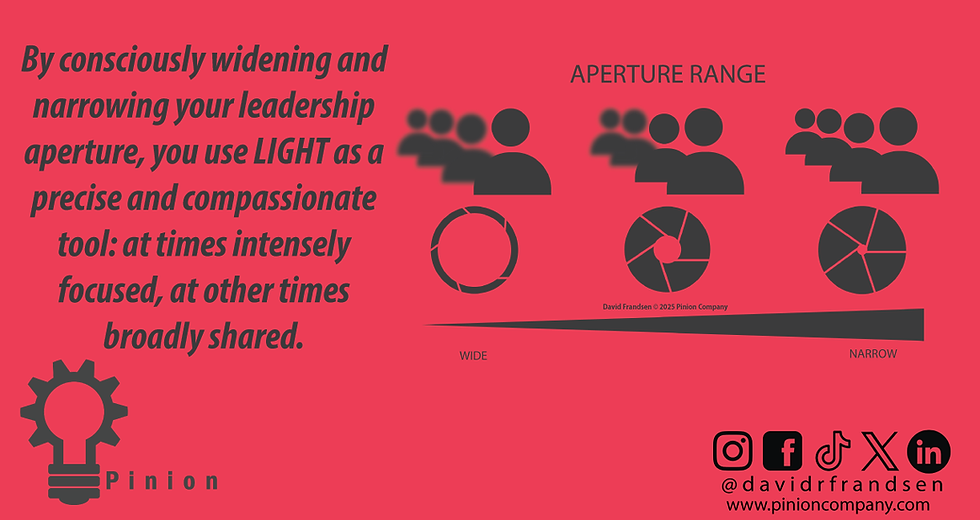Invisible Leader: Anne Frank’s Enduring Impact on Communication and Resilience
- David Frandsen
- Aug 4
- 3 min read

August 4th is a date that marks one of history’s darker chapters—the day in 1944 when Anne Frank was captured by the Nazis. Remembering Anne is more than recalling a tragedy; it’s about honoring a remarkable demonstration of leadership under immense hardship. Anne’s experience in the Secret Annex offers lessons about influence, resilience, and the subtle power of guiding others—lessons that resonate far beyond her time.
Leadership Where It Mattered Most
Despite being the youngest in hiding and lacking any formal authority, Anne gradually became a source of strength and hope for those around her. She lifted spirits by telling jokes, remembering special days, and offering comfort or an empathetic ear. Her ability to maintain a sense of normalcy, even fleetingly, helped support the emotional well-being of everyone in the Annex.
When conflict inevitably arose in the crowded, tense setting, Anne often displayed a remarkable degree of self-awareness. She did not shy away from addressing her own flaws or from speaking difficult truths, both in her relationships and in her writing. This kind of honesty—leading by example, seeking personal growth, and fostering openness—embodies what effective leaders practice, even in the most constrained circumstances.
The Power of Communication
Anne’s greatest gift to the world was her diary. Through it, she turned isolation, fear, and uncertainty into shared experience and enduring hope. Her reflections connected those living together with uncertainty, but they also speak to people everywhere, even across generations and continents. Communication, in Anne’s case, was not only about sharing information; it was a way of building bridges, cultivating empathy, and shaping collective memory.
This is where my planetary gear model helps illuminate a key point. In any group—be it a family in hiding or a modern team—communication acts as the crucial link that keeps everything turning smoothly. Anne’s diary was the “carrier” that translated private struggles into something universally meaningful. She didn’t set out to lead this way, but her writing became a powerful tool for unity, reflection, and hope.
Resilience and Responsibility
Anne Frank’s endurance and optimism in the face of despair set her apart. She held onto the belief that people are fundamentally good at heart and never let go of hope for a better world. Such resilience—choosing not to surrender to hopelessness—became a form of quiet leadership for those with her, and a beacon for generations to come.
What’s striking is how Anne assumed responsibility for the group’s morale and spirit, often comforting others before herself. Leadership here wasn’t about titles or commanding others, but about responding to need, maintaining dignity, and showing persistent kindness even when it was hardest.
Lessons We Carry Forward
Anne Frank’s legacy reminds us that leadership needs not be loud or official. Sometimes, it’s about showing up for others, modeling resilience, and telling the truth—even only in a journal. It’s about helping create an environment where people can still find hope in the darkest of times. As the planetary gear model suggests, leadership is part of a system; when empathy, communication, and care come together, even a young person in hiding can help keep the world turning.
On this anniversary of her capture, Anne Frank’s story urges us to find our own ways to lead with courage, empathy, and conviction, no matter our circumstances. Her voice continues to turn the gears of history, reminding us that leadership, in its truest sense, is possible anywhere.




Comments